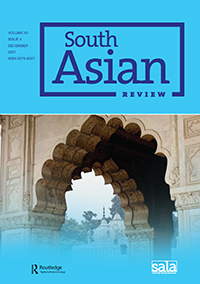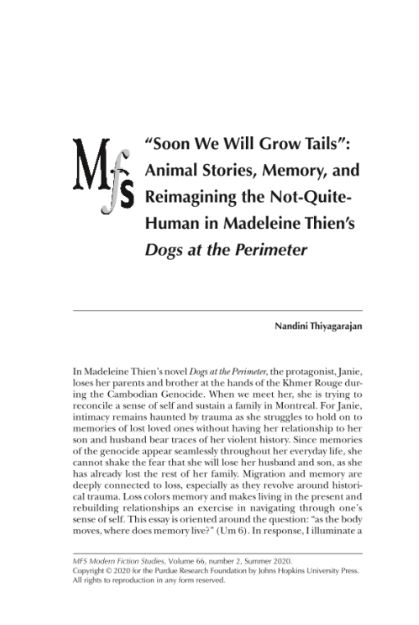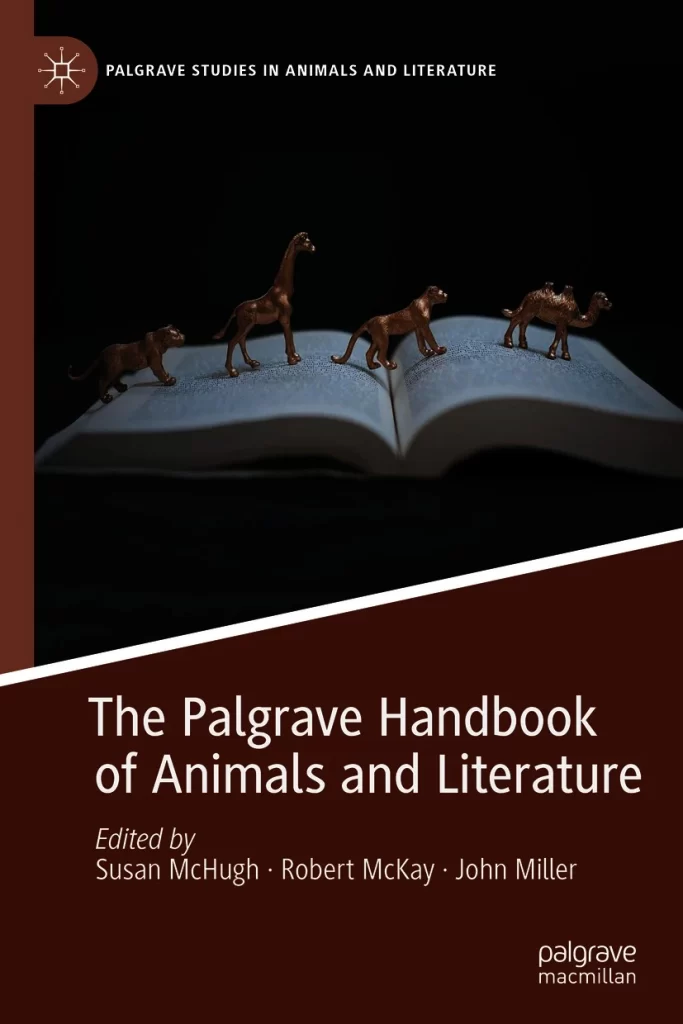
Acadia University | Department of English
| Research Areas: Postcolonial Literature; Asian North American Literature; Animal Studies; Environmental Humanities |
Dr. Nandini Thiyagarajan is an Assistant Professor of English at Acadia University. Thiyagarajen’s doctoral research on the relationship between race and animals forms the foundation for her work in “Racialized Ecologies in and Beyond Settler-Colonial Canada: Documentary, Speculative and Poetic Texts and Contexts.” In it, Thiyagarajan examined the roles animals play in relation to queerness and belonging in the South Asian diaspora, conceptualizations of refugees as not-quite-human, and a multispecies sense of home. Thiyagarajan’s work on the relationships between race, animals, and the environment has been published in South Asian Review, Modern Fiction Studies, English Studies in Canada, and the edited collections Creatural fictions: human-animal relationships in twentieth- and twenty-first-century literature and The Palgrave Handbook of Animals in Literature. Her most recent publication demonstrates how concerns about animals are held alongside critiques of gender, caste, and the environment in South Asia. In this project, she applies her expertise on race and animals, specifically in relation to invasive ecologies and within the settler-colonial Canadian context.
Selected Publications

Thiyagarajan, Nandini. “Inevitable Lives: Connecting Animals, Caste, Gender, and the Environment in Perumal Murugan’s The Story of a Goat.” South Asian Review, 2021.
In an analysis of Perumal Murugan’s novel, The Story of a Goat, Thiyagarajan argues that the novel resists the inevitability of the goat’s death by foregrounding her animalness, connecting and subjecting her experiences to human geopolitics of caste and gender-based oppressions, and presenting the natural world as both abundant and dangerous.

Thiyagarajan, Nandini. “‘Soon we will grow tails’: Animal Stories, Memory, and Reimagining the Not-Quite-Human in Madeleine Thien’s Dogs at the Perimeter.” Modern Fiction Studies, vol. 66, no. 2, Summer 2020, pp. 349-370.
Thiyagarajan explores the relationship between migration, memory, and animals in Madeleine Thien’s novel Dogs at the Perimeter, arguing that the figure of the refugee imagines new modalities of the human through memory negotiation via animals and animality. Thiyagarajan asserts that the main character’s relationships with animals undo and reimagine the not-quite-human, allowing for kinships that move beyond the human.

Thiyagarajan, Nandini. “We Are Not in This World Alone: On Drawing Close, Animal Stories, and a Multispecies Sense of Place.” Palgrave Handbook of Animals in Literature. Susan McHugh, Robert McKay, & Robert Miller, eds. Palgrave Macmillan, 2021.
This chapter explores the significance of literary animals in their own right, outlining a methodology of reading animals through the concept of “drawing close,” which emphasizes a relationship between race and animals, and applying it to Mohsin Hamid’s novel Exit West and his short story “The Kites Are Leaving”. Thiyagarajan argues that Hamid tells a parallel story about migration and vulnerability that is distinctly animal, expressing an identification between migrants and animals and envisioning a multispecies sense of place that works against human exceptionalism and circulates around respect and coexistence.
